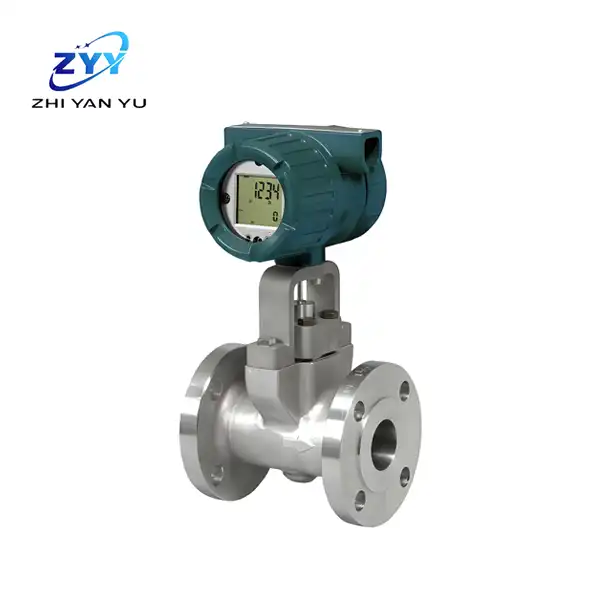- English
- French
- German
- Portuguese
- Spanish
- Russian
- Japanese
- Korean
- Arabic
- Greek
- German
- Turkish
- Italian
- Danish
- Romanian
- Indonesian
- Czech
- Afrikaans
- Swedish
- Polish
- Basque
- Catalan
- Esperanto
- Hindi
- Lao
- Albanian
- Amharic
- Armenian
- Azerbaijani
- Belarusian
- Bengali
- Bosnian
- Bulgarian
- Cebuano
- Chichewa
- Corsican
- Croatian
- Dutch
- Estonian
- Filipino
- Finnish
- Frisian
- Galician
- Georgian
- Gujarati
- Haitian
- Hausa
- Hawaiian
- Hebrew
- Hmong
- Hungarian
- Icelandic
- Igbo
- Javanese
- Kannada
- Kazakh
- Khmer
- Kurdish
- Kyrgyz
- Latin
- Latvian
- Lithuanian
- Luxembou..
- Macedonian
- Malagasy
- Malay
- Malayalam
- Maltese
- Maori
- Marathi
- Mongolian
- Burmese
- Nepali
- Norwegian
- Pashto
- Persian
- Punjabi
- Serbian
- Sesotho
- Sinhala
- Slovak
- Slovenian
- Somali
- Samoan
- Scots Gaelic
- Shona
- Sindhi
- Sundanese
- Swahili
- Tajik
- Tamil
- Telugu
- Thai
- Ukrainian
- Urdu
- Uzbek
- Vietnamese
- Welsh
- Xhosa
- Yiddish
- Yoruba
- Zulu
How Do I Choose a Mass Flow Meter?
2024-07-11 14:09:51
Choosing the right mass flow meter is essential for accurate and reliable measurement of fluids in various industrial processes. A mass flow meter measures the flow rate of a fluid based on its mass rather than its volume, providing precise data critical for many applications. In this blog, we'll explore how to select the best mass flow meter for your needs, with a particular focus on Yokogawa mass flow meters.
What Factors Should I Consider When Choosing a Mass Flow Meter?
In order to ensure that a mass flow meter meets the particular requirements of your application, a number of important considerations must be made. Some examples of these are:
One kind of liquid: The choice of a mass flow meter is heavily influenced by the fluid's composition, temperature, and viscosity. When measuring fluids, a variety of technologies must be utilized.
Range of Flow: The anticipated range of flow rates must be accurately measured by the meter. The meter should accurately record both the base and highest stream rates.
Prerequisites for Accuracy: Measurement accuracy requirements can vary depending on the application. Meters with minute error margins are needed for high-accuracy applications.
Installation preparation: The type of meter that should be used is influenced by temperature, pressure, and the presence of hazardous substances in the environment.
Needs for Assistance: Consider the simplicity of alignment and upkeep prerequisites of the mass stream meter. Low-maintenance models reduce operating costs and downtime.
How Do Yokogawa Mass Flow Meters Compare?
Yokogawa is a particularly respected creator of mass stream meters, known for their precision and unflinching quality. When considering them, take into account the following Yokogawa mass flow meter advantages:
The Most Up-To-Date Sensor Technology: High precision and stability are provided by the advanced Coriolis and warm stream sensors used in Yokogawa meters.
Multiple Applications: Yokogawa offers a wide range of meters that are capable of working with a wide variety of fluids and conditions, including harsh environments.
Amicable UIs: Many Yokogawa meters' user-friendly software and interfaces simplify installation, operation, and maintenance.
Customization Options: Yokogawa meters can be modified to meet the prerequisites of explicit applications, guaranteeing ideal execution.
Why Is Calibration Important for Mass Flow Meters?
Calibration is absolutely necessary to guarantee the accuracy of mass flow meters over time because even the most precise meters are susceptible to drift due to wear and environmental factors. The broad alignment methods and instruments that accompany Yokogawa mass stream meters simplify it to make exact changes and keep up with their steadfastness.
Regular calibration involves comparing the meter's readings to a known standard and making any necessary adjustments to maintain accuracy. While deciding the recurrence of adjustment, the specific prerequisites of your application, like consistence with industry guidelines or administrative necessities, are thought about. By increasing the meter's measurement reliability and extending the meter's lifespan, this proactive strategy ensures consistent performance in demanding operational environments.
What Are the Installation Best Practices for Mass Flow Meters?
Proper installation is vital for the optimal performance of mass flow meters. Here are some best practices:
Straight Pipe Runs: Ensure there are sufficient straight pipe runs upstream and downstream of the meter to avoid turbulence and ensure stable flow conditions.
Avoid Vibrations: Install the meter in locations free from excessive vibrations, which can affect the accuracy of the measurements.
Correct Orientation: Follow the manufacturer's guidelines on the orientation of the meter to ensure it operates correctly.
Clean Environment: Install the meter in a clean environment to prevent contamination and buildup that could impact performance.
How Do Yokogawa Mass Flow Meters Enhance Process Efficiency?
Through a number of key features, Yokogawa mass flow meters significantly improve process efficiency:
High Precision: Yokogawa meters are very good at taking precise measurements, which helps keep processes under tight control. This accuracy reduces waste, improves product quality, and keeps output variability to a minimum. Yokogawa's dedication to precision aids in the improvement of production procedures and the maintenance of consistent product standards when measuring steam, gases, or liquids.
Durability: Yokogawa mass flow meters are constructed using durable materials and cutting-edge engineering and are built to withstand harsh industrial environments. Their operational lifespan is extended, but their durability also reduces the need for replacement and maintenance. In industries like oil and gas, chemical manufacturing, and power generation where continuous operation and minimal downtime are crucial, this dependability is essential.
Capabilities for Integration: Yokogawa meters have sophisticated integration capabilities that make it easy to connect to a variety of control and automation systems. Real-time data acquisition and transmission is made easier by this integration, allowing engineers and operators to quickly make decisions based on accurate information. Yokogawa meters aid in process control and operational efficiency by providing accurate and current information on flow rates and process conditions.
Extra Features: Advanced features like diagnostic tools, self-check mechanisms, and communication protocols (like HART, Modbus) are frequently included in Yokogawa mass flow meters in addition to basic flow measurement for improved functionality and ease of integration into existing infrastructure. These elements smooth out establishment and upkeep processes as well as help exhaustive cycle enhancement endeavors.
Standards and conformity: Yokogawa meters comply with industry-specific regulations and quality management systems by adhering to international standards and certifications. This obligation to principles builds up unwavering quality and confidence in Yokogawa items across different modern areas universally.
In essence, the accuracy, durability, integration capabilities, and advanced features of Yokogawa mass flow meters set them apart. These qualities aggregately add to expanding process effectiveness, limiting functional expenses, and guaranteeing steady execution in requesting modern applications.
Conclusion
Choosing the right mass flow meter requires careful consideration of the fluid properties, flow range, accuracy requirements, and installation environment. Yokogawa offers a range of reliable and precise mass flow meters suitable for various applications. By following best practices in installation and calibration, you can ensure accurate and efficient operation, enhancing overall process performance.
References
Yokogawa Corporation of America. "Flow Meter Selection Guide."
Yokogawa Electric Corporation. "ROTAMASS Total Insight."
Yokogawa America. "Flow Meters Overview."
DirectIndustry. "Choosing the Right Flow Meter."
Yokogawa Electric Corporation. "Coriolis Flow Meters."
Yokogawa Electric Corporation. "Mass Flow Calculation in digitalYEWFLO Vortex Flow Meter."
Yokogawa Electric Corporation. "ADMAG AXW."
Yokogawa Electric Corporation. "Variable Area Flowmeters."
Yokogawa Electric Corporation. "Mass Flow (Multivariable)."
Yokogawa Electric Corporation. "User's Manual ROTAMASS TI Coriolis Mass Flow Meter."
For more information, feel free to contact us at lm@zyyinstrument.com for more product details.
YOU MAY LIKE

